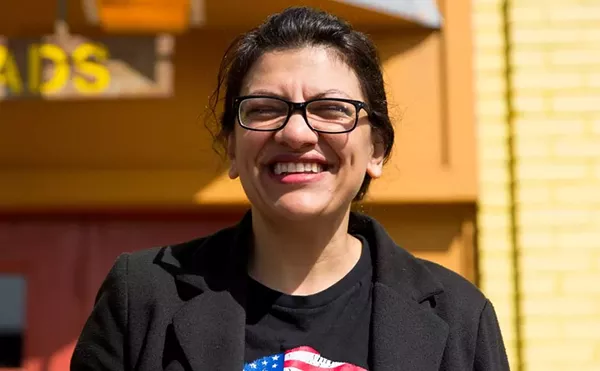Priceless art?
We received a number of responses to Jack Lessenberry's Oct. 15 column "Utterly Tone Deaf" about the Detroit Institute of Art's top executive pay raises. Reader "Harry Palmer" wrote:
Maybe Macomb would have shot down the millage, but do you really think Oakland would have passed it if the raises were in the picture? Anyway, it's either mind-numbingly tone deaf, or hubris that would be the envy of the last Bush administration that the DIA would hand out these raises, now.
On the other hand ... every other major art museum in the country probably is somewhat supported on the state level. Michigan chose to slash funding for arts and culture during the Engler years, and has continued to do so. That's a major reason the DIA has to continually go hat in hand begging. NYC's threat of bankruptcy years ago never put its museums on the auction block.
The DIA, DSO, or any other institution had nothing to do with the city's underfunded pension programs.
There's a mentality in Michigan regarding Detroit cultural institutions that their Directors, Conductors and performing artists all should be paid less than their national counterparts, because you know ... it's "only the Detroit market."
Meanwhile, taxpayer-funded sports stadiums, which are loss leaders to the municipalities where they reside, allow the team's owners to reap huge profits, and (as you stated) the players (no matter how mediocre) in many cases are paid much more than Beal and company, and everyone's OK with that.
Reader "Are they worth it?" wrote:
I didn't vote for the DIA millage proposal to have the money squandered by giving ridiculous raises to just two directors. That quarter million dollars a year could and should go towards additional staffing, longer hours, more programs and lectures.
Driving us crazy
We received a number of responses to Jeff Meyers's critique of the Performance Network Theatre's choice of "Driving Miss Daisy". Reader Hal Cropp wrote:
While this essay raises very interesting questions, about how the question of race is being "discussed" in the American theater, and about the need to balance the question of artistry with sustainability, yet I am dismayed by the conclusion that marketing is dominating artistry. The author readily identifies that PNT will be producing a more challenging, and to him, more artistically satisfying work later in the season. This points to an underlying thesis: that sustainability as an arts organization lay within the concept of balance. Rather than seeing this as marketing triumphing over artistic expression, one can view this as marketing and artistry striving to achieve equilibrium in a culture which is, self-confessed, market driven.
Reader "Alex" wrote:
Sustainability, as you have used it, Hal, is a very loaded term. There is nothing inherently "unsustainable" about an artist or arts organization continually producing challenging work that is relevant to their communities. I don't think there a shortage of artists who want to push boundaries and work in this direction. What I think there is a shortage of, is production funding that doesn't tie you to either wealthy individuals, or a government agency with bizarre and often contradictory priorities that have little to do with the actual art being produced.
Reader "Evon" wrote:
Unfortunately, the continuation of "token" productions by some theaters is not unique to Detroit. There is a tremendous need to support African-American and Latino theater companies who are indeed pushing the [envelope] and who are often overlooked by some theater audiences but certainly funders in [their] own back yard. How about more support for companies like St. Louis Black Repertory, Pregones and Plowshares.







